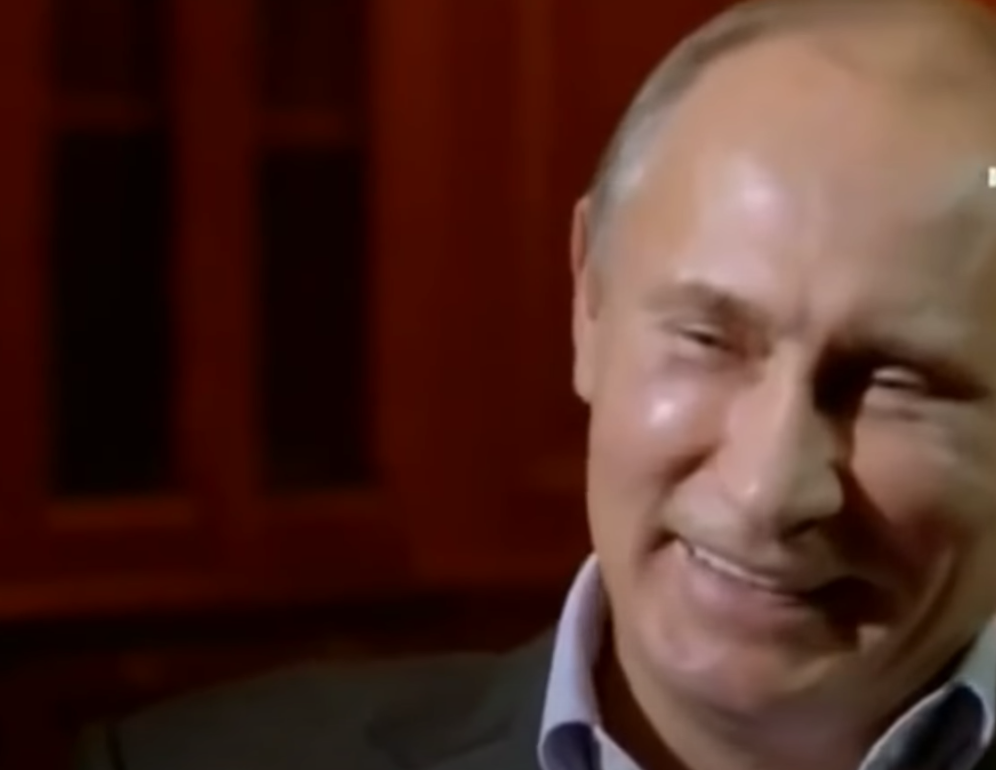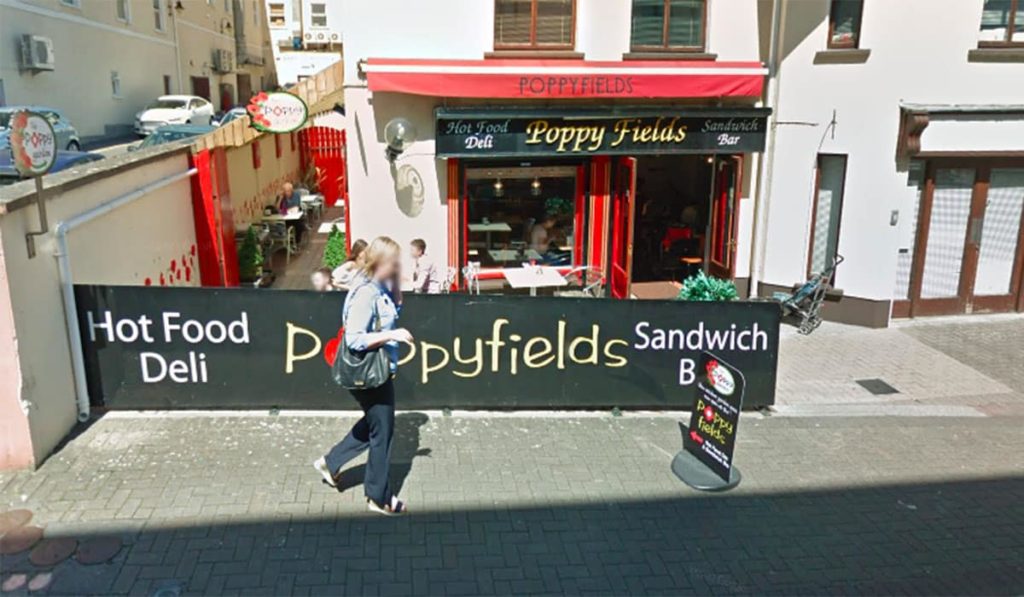Putin’s Last Laugh

Allister Heath writing in the Telegraph:
Britain is now in grave danger of falling into Vladimir Putin’s trap. His kamikaze economic war on the West will eventually take down his disgusting coterie of war criminals, but in the meantime it is beginning to inflict immense, permanent damage on the Western way of life, to the great delight of Moscow’s siloviki hard men.
We risk ending up with calamitous poverty, civil disobedience, a new socialist government by next year, a break-up of the UK, nationalisations, price and incomes policies, punitive wealth taxes and eventually a complete economic and financial meltdown and IMF bailout. The situation in the EU is, if anything, worse.
He says that Britain was right to back Ukraine to the hilt, and must not back away from that commitment. But it's going to cost. More:
Cheap and plentiful energy is essential to our consumerist societies. We cannot be delusional about the scale of the developing catastrophe. Household energy and vehicle fuel costs will jump from 4.5 per cent of household spending in early 2021 to some 13.4 per cent by April next year, much higher than at any time during the past 50 years, including the 1970s, according to Carbon Brief. Households may face a rise in energy costs of £167 billion, or 7 per cent of GDP, taking total expenditure to £231 billion, more than government spending on health, and that is before the hit to business is accounted for. The rise for consumers alone is more than the combined defence and education budgets.
He concludes:
Why, oh why, did Britain and Europe allow themselves to become Putin’s hostages?
Wait ... what?! As Gavin Ashenden puts it:
Except that it wasn’t Putin’s trap, it was NATO & the EU trapping itself with globalist expansion. But so much easier to blame Putin.
If you haven't done so yet, now is the time to read Christopher Caldwell's excellent essay, "Why Are We In Ukraine?" Excerpt:
Russia was never without an excuse to meddle in Ukraine. The Ukrainians are an ancient people. But rather like the Kurds they inhabit a dangerous neighborhood, and for most of their modern history have been unable to found a real nation-state. Under Communism Ukraine became one of the Soviet socialist republics. This was an administrative statehood, not a real sovereignty. Still, it was better than what they got in the decade after Communism fell. Living standards plummeted by 60%. Corruption rose to levels unique in Europe.
The cultural lines between Russia and Ukraine have always been blurry. They are fraternal peoples and arch-foes. They are, it seems, the entities for which the word “frenemy” was coined. In many parts of the country—notably the Crimean peninsula, with its ports and its centuries-old Russian naval bases, and in the eastern mining and manufacturing region called the Donbass—people feel themselves considerably more Russian than Ukrainian. In 1944 Stalin complicated the situation (or, by his lights, simplified it) when he deported the Muslim Tatars who had been resident there, primarily in Crimea, for centuries. Russian has for generations been the lingua franca of business and culture in Ukraine—although its public use has been suppressed since 2014.
That was a hinge year. Ukrainian diplomats had been negotiating an “association agreement” with the European Union that would have created closer trade relations. Russia outbid the E.U. with its own deal, which included $15 billion in incentives for Ukraine. President Viktor Yanukovych signed it. Protests, backed by the United States, broke out in Kiev’s main square, the Maidan, and in cities across the country. By then the U.S. had spent $5 billion to influence Ukraine’s politics, according to a 2013 speech by State Department official Victoria Nuland. Russia now viewed this activity as having funded subversion and revolt. Like every Ukrainian government since the end of the Cold War, Yanukovych’s government was corrupt. Unlike many of them it was legitimately elected. When shootings near the Maidan in Kiev left dozens of protesters dead, Yanukovych fled the country, and the United States played a central role in setting up a successor government.
Meddling with vital Russian interests at Russia’s doorstep turned out to be more dangerous than orating about democracy. Rather than see the Russophone and pro-Russian region of Crimea transformed from a Russian naval stronghold into an American one, Russia invaded it. “Took over” might be a better verb, because there was no loss of life due to the military operation. Whether the Russian takeover was a reaction to American crowding or an unprovoked invasion, one thing was clear: In Russia’s view, Ukraine’s potential delivery of Crimea to NATO was a more serious threat to its survival in 2014 than—to take an example—Islamic terrorism had been to America’s in 2001 or 2003. Understanding that Russia would respond accordingly to any attempt to wrest it back, Russia’s European and Black Sea neighbors tended thenceforth to treat Crimea as a de facto part of Russia. So, for the most part, did the United States. The Minsk accords, signed by Russia and Ukraine, were meant to guarantee a measure of linguistic and political autonomy in the culturally Russian Donbass. (Russia claims the violation of these accords as a casus belli.)
Anyone who watched the first Trump impeachment in 2019 will know that U.S. Ukraine policy—and the personnel carrying it out—did not change, in its essence, between the Obama and Trump administrations. Through steady deliveries of weaponry and military know-how, the failed state of 2014, defended by a ramshackle collection of hooligans and oligarch-sponsored militias, was transformed by 2021 into the third-largest army in Europe, fully interoperable with that of the United States. Ukraine, with a quarter-million men under arms, was outmanned only by Turkey and Russia. The real caesura came not with Trump’s arrival but with his departure. In the first weeks of 2021, Joe Biden committed his administration to a considerably more aggressive Ukraine policy. Last November 10, Blinken signed a “strategic partnership” that not only reasserted the Bush Administration’s commitment to admit Ukraine into NATO, but also reopened contested sovereignty questions, including that of strategically vital, culturally Russian Crimea.
The Mearsheimer account culminates with an implicit question: What did you think Russia would do?
Similarly, when Western leaders responded to Putin's invasion with an open attempt to destroy the Russian economy -- I quoted some of the statements by EU figures here yesterday -- what did they think Russia would do? It's incredible that seemingly intelligent people in the West live under the illusion that because Russia's invasion of Ukraine is illegal and immoral, that Russia should sit back and allow the West to destroy its economy without retaliating.
Viktor Orban said from the beginning of this conflict that the West had better pursue peace, because it cannot afford the cost of an energy war. "Putin symp!" they all screamed. But Viktor Orban was right.
I don't know what it was like in the United States this spring and summer; I've been in Europe for almost the entirety of the Russia-Ukraine war. But I well remember that here in Europe at least, there were widespread condemnations of all things Russian. When I arrived in Vienna in early June, you could see handbills around the city saying that you cannot love Dostoevsky or Tchaikovsky without also loving Putin -- that is to say, they were calling for a total boycott of all things Russian, even Russian culture. We didn't even see such madness during the Cold War, when Russia was ruled by an imperialistic totalitarian regime far worse than the Putin government (which is bad enough). All things Russian were hysterically demonized, and Russians who may not even have supported the war were treated like trash.
So, how can we be surprised that Russia is using its energy weapon against the West? Again: we in the West have been waging economic war on Russia since the invasion (as well as sending Ukraine weapons and intelligence). You may think that waging economic war was and is the right thing to do morally, but you surely cannot be such a hypocrite as to say that Russia has no right to do what it's doing to the West now -- and you surely cannot be such a fool as to believe that this was not inevitable.
If Viktor Orban could see this coming back in February, when the war started, why couldn't every other European leader? Why couldn't Washington?
To be clear: none of this excuses Putin's invasion of Ukraine. The loathing of Putin and Russia over this invasion, though, made it impossible for very many people in positions of leadership to think clearly about what was at stake in this conflict. It caused them to believe, somehow, that the West was invulnerable, and could do what it wanted to Russia, with impunity.
Well.
And now Britons and Europeans who don't understand why they have to be broke and cold in the dark, and live through the destruction of their economies and livelihoods, for the sake of Ukraine, are probably not going to be in the mood to be told that objecting to the idiotic leadership that got their countries into this mess means they are nothing but a pack of Putin symps who love dictatorship.
I wish Allister Heath would go visit this coffeeshop in Ireland and explain to its owner why this is necessary, to stand for Ukraine:
Subscribe Today
Get daily emails in your inbox
Here, via an Irish newspaper, is a photo of Poppyfields Cafe. Take a good look -- it will surely be closing soon. Maybe Geraldine Dolan can tweet "Slava Ukraini" from the unemployment line this winter.

Subscribe for as little as $5/mo to start commenting on Rod’s blog.